“Cantata is our first game together as a full studio, but different cross-sections of us have worked together in the past on everything from short films to VR experiences,” explains Kyle Kukshtel, co-founder and creative director of Afterschool Studio, when we interview him in August.
Afterschool Studio describes itself as a game development studio “dedicated to creating art-forward, systems-driven games that allow for expressive player experiences.” Clearly, strategy game Cantata has a striking artistic style, as well as a deep blend of game mechanics.
Kukshtel previously co-founded the Emmy-award-winning XR studio Scatter and is a prolific writer on game development culture. Cantata – a passion project inspired by the likes of Advance Wars – is his first game with Afterschool Studio. “We all wanted to make a ‘real’ videogame,” he continues. “So we got together for Cantata, which was a huge learning experience. But I think we were able to build tools and workflows that allowed us to punch above our weight class.”
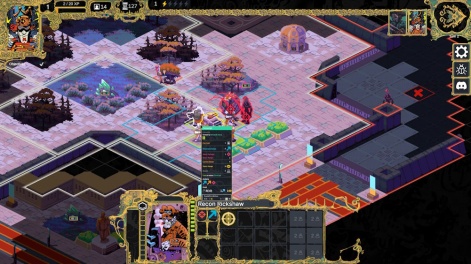
At the game's launch by publisher Modern Wolf this month, we quizzed Kukshtel about his vision and what makes the game distinct.
What’s your philosophy as a game developer? What makes your games unique?
The thing I mention most internally is thinking about games as cooking something that needs a reduction, like a sauce or spinach or a leafy green. You throw a lot of stuff in the pan and then sort of let it simmer and reduce. What’s left is a potent mix of the ingredients, but the mass itself is much less than the initial product.
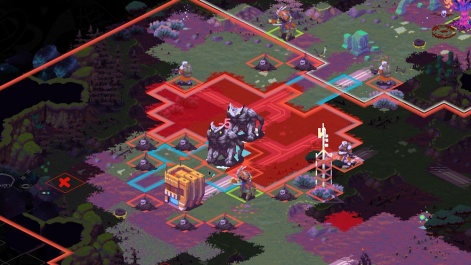
So, I view it as this process of throwing a lot of things together, cutting liberally to find the core of the idea, adding more, and so on. If you participated in Cantata’s Early Access period, you definitely saw this first-hand. We’d add major features or design changes and then cut them a month or two later but save a sliver of the idea.
The visual style of Cantata is very striking (somebody described it as psychedelic). What was the inspiration behind this art direction?
I wanted to make something that could provide a platform for people making their own strategy gamesKyle Kukshtel
We’re obviously fans of Advance Wars, so that’s very much the starting point. But from there, when I started Cantata, I was looking at a lot of Killian Eng’s work and saw it as a sort of evolution from something as playful as Advance Wars to something a bit more mysterious. It was still colourful and vibrant, but the composition and ideas of the works themselves often implied something greater, and it was less about the individual.
How did you settle on the “grand tactics” genre blend for Cantata? What existing games inspired this idea?
I gave a long talk at Tacticon that goes into this (you can find it online), but the tl;dr is that we first tried to make just a “big” Advance Wars, but in stretching that design, we found a lot of holes that needed to be filled. So we started looking at games of similar scale and porting ideas and references from them into the design soup of Cantata to see what worked.
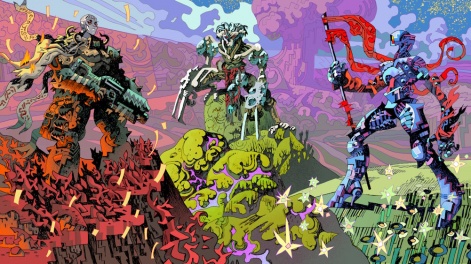
Things like Northgard are a nice reference, but we also were looking a lot at board games like Inis, Root, and Twilight Imperium.
What gameplay features help differentiate Cantata from other turn-based strategy titles on the market?
The supply element is definitely our most unique element. We have this Factorio-style resource conversion and production thing going on that’s tied to the production of units.
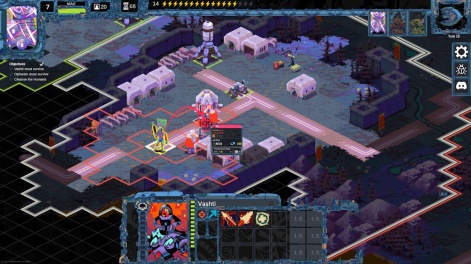
But on top of that, we are taking inspiration from other games, ideas that are individually recognizable (region control, ammo, unit perks, etc.) but haven’t ever really existed together. There really isn’t anything else like Cantata around unless you start dipping into hardcore simulation wargames or try to instead just take slices of the game to compare to games that share that specific element.
We’re doing our best to make this something that can stand on its ownKyle Kukshtel
What can you tell us about the mysterious planet players will explore? How did you go about developing the lore and backstory?
That’s mostly all from our writer, Roy Graham. We started all of it from a super rough idea of the factions and their role on this planet, but then asked, “Okay, who is IN this faction?” That produced the Commanding Officers you play as in the game. From their dynamics and personalities, the plot started to form around them.
What was it like partnering with Modern Wolf as your publisher?
Modern Wolf is great. Given the above, it’s worth saying that Cantata is definitely a bit of a weird game. We had to “find” the game we were looking for and couldn’t just say something like, “It’s Final Fantasy Tactics but in space,” or something like that!
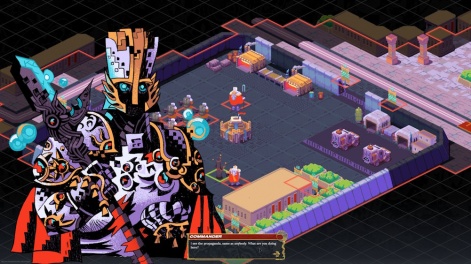
This translates to a lot of iteration and design time, and Modern Wolf really backed us up and supported us to give us not only the time to make the game but also the flexibility to help us find what the best version of the game is. I have no regrets on Cantata, and really feel like we’ve been given the ability to make the best game we could.
What challenges did you face in balancing the game’s depth and complexity with accessibility for a broad audience?
It’s an ongoing challenge, honestly. It’s something that we will probably be perpetually fighting. We try to do our best to signal only things that matter to players, but based on a given player’s skill level, they come in with different expectations about what that means.
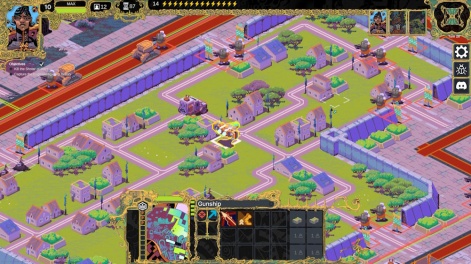
Beyond that, the maps themselves are a challenge because we want something immensely narrative. But at the same time, some hardcore players are coming in wanting a really tough challenge. We have multiple modes in the game to try and suit that effort. I don’t think we exactly nail it right now, but we’re doing our best to try and make this game not be one thing or another but instead be something unique that can stand on its own.
What inspired you to include modding and map creation tools for players to customize their experience?
It’s a bit philosophical and meant to be a way to give back to the community and genre that I have been enjoying for the past few decades. Someone recently called us “the Garry’s mod of 4X,” and I think that’s pretty apt. I wanted to make something that could stand on its own as a campaign but also effectively provide a platform for people to riff on making their own strategy games without needing to code.
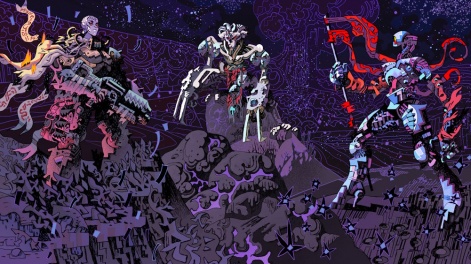
Making these types of games is a huge lift, so being able to provide people with an open-ended tool that does all the hard stuff for them is really nice. We also dogfooded all the modding tools we’re shipping, so the editor isn’t some fly-by-night thing; it’s a full-on Warcraft 3-tier editor for the game (and is obviously an inspiration).
What lessons from developing Cantata will you look to apply to your next project?
So many things. Understanding the implications of design decisions on production is obviously a huge one and something I’m sure every developer can relate to, no matter how many games they’ve made.
But another one is not being afraid to cut things in a game. Over the course of development, I got way less precious about what I thought the game should be, and the game is much better for it. “Getting out of the way of the game” is a good lesson here in that regard and something I’m sure I’ll need to stick on the wall of the office so I don’t forget it.
This is an interview with Kyle Kukshtel, founder and creative lead at Afterschool Studio. Cantata is available now on Steam and you can watch its launch trailer above. PC Games Insider and its parent company have a long history of supporting the indie game scene. If you’re a small team working on an indie game now, consider entering it for the showcase or pitching competition at an upcoming Pocket Gamer Connects event. At the time of writing, the next conference in this series takes place in Helsinki on 12th and 13th September.













